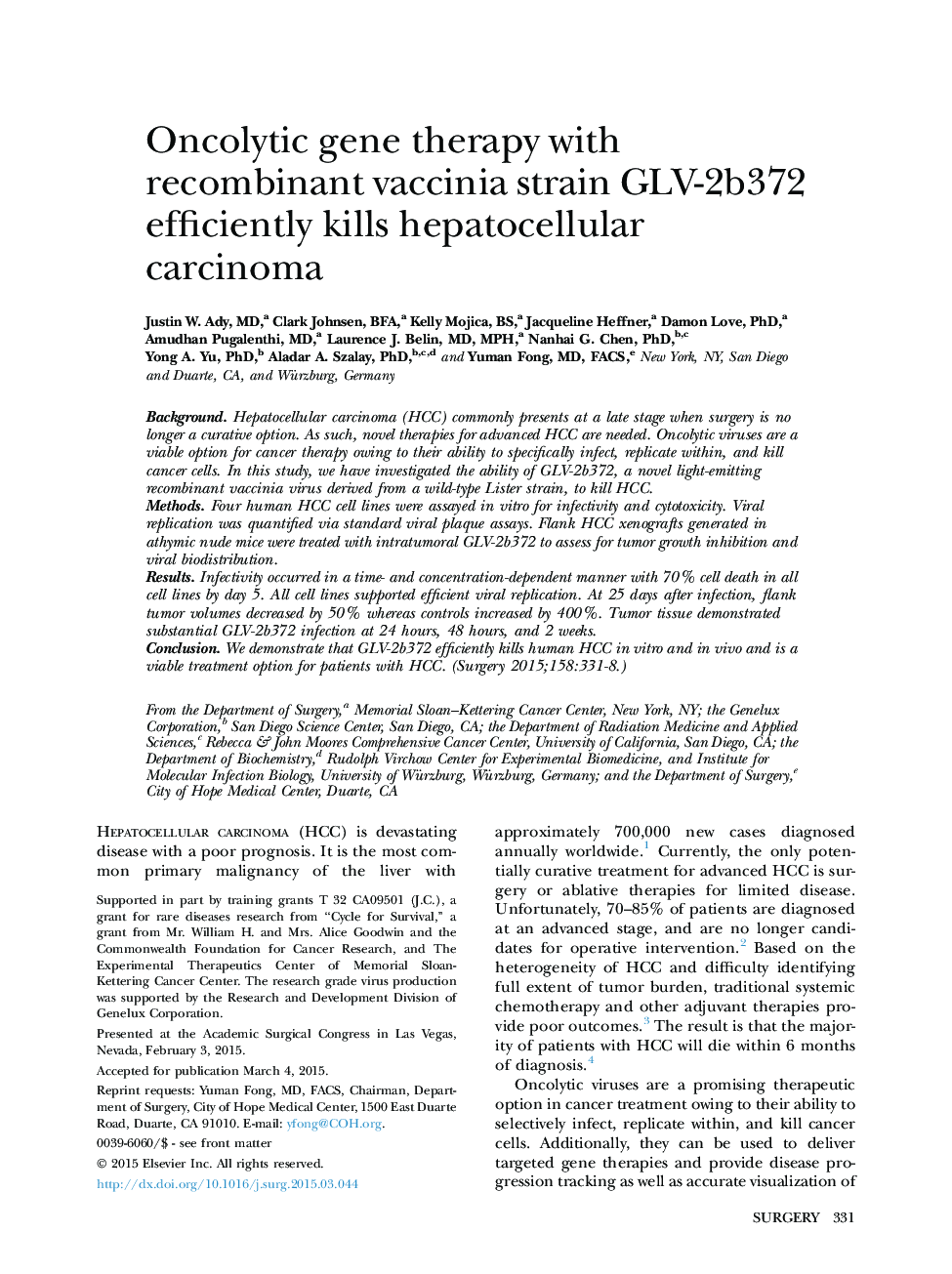| Article ID | Journal | Published Year | Pages | File Type |
|---|---|---|---|---|
| 4306999 | Surgery | 2015 | 8 Pages |
BackgroundHepatocellular carcinoma (HCC) commonly presents at a late stage when surgery is no longer a curative option. As such, novel therapies for advanced HCC are needed. Oncolytic viruses are a viable option for cancer therapy owing to their ability to specifically infect, replicate within, and kill cancer cells. In this study, we have investigated the ability of GLV-2b372, a novel light-emitting recombinant vaccinia virus derived from a wild-type Lister strain, to kill HCC.MethodsFour human HCC cell lines were assayed in vitro for infectivity and cytotoxicity. Viral replication was quantified via standard viral plaque assays. Flank HCC xenografts generated in athymic nude mice were treated with intratumoral GLV-2b372 to assess for tumor growth inhibition and viral biodistribution.ResultsInfectivity occurred in a time- and concentration-dependent manner with 70% cell death in all cell lines by day 5. All cell lines supported efficient viral replication. At 25 days after infection, flank tumor volumes decreased by 50% whereas controls increased by 400%. Tumor tissue demonstrated substantial GLV-2b372 infection at 24 hours, 48 hours, and 2 weeks.ConclusionWe demonstrate that GLV-2b372 efficiently kills human HCC in vitro and in vivo and is a viable treatment option for patients with HCC.
